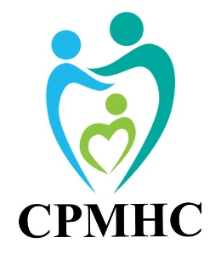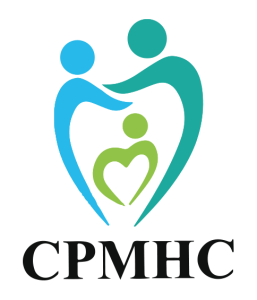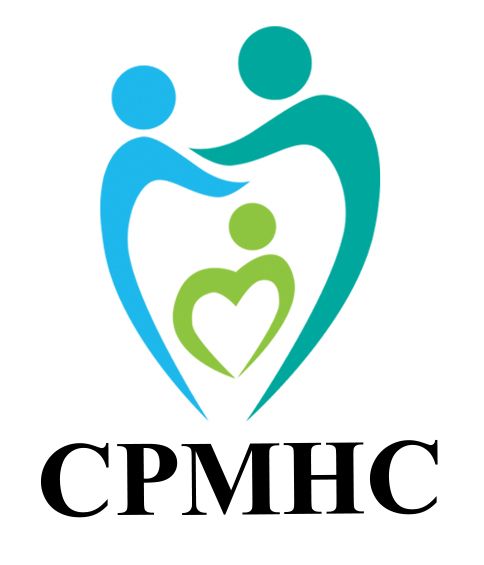The following is an article by the Canadian Perinatal Mental Health Collaborative as part of their #thisismystory campaign shedding a light on the need for improved perinatal mental health care in Canada.
Told as a teenager she might never have children, Morag Wehrle of North Vancouver, B.C., pushed the idea of motherhood out of her mind.
“I was diagnosed with polycystic ovary syndrome at age 17,” Wehrle told us. “One of the side effects that was indicated to me was that it would be extremely difficult for me to get pregnant.”
Polycystic ovary syndrome is a hormonal disorder that affects six to 10 per cent of women and can cause irregular periods and fertility problems.
“At 17, this obviously wasn’t of much concern to me, but as I got older I built a defensive wall around the idea of parenthood,” Wehrle said. “I decided I didn’t want it, because I was afraid I wouldn’t be able to have it.”
At age 34, fresh off completing a grueling 3000-hour registered massage therapy program, Wehrle and her husband Josh decided that they wanted to become parents. Wehrle felt she was ready for however long the journey to pregnancy would take. But much to her and Josh’s surprise, Wehrle became pregnant right away.
“I had been on oral birth control to regulate my menstrual cycle,” Wehrle told us. “To our shock, as well as that of my general practitioner, I got pregnant on my first cycle off the pill.”
Looks like motherhood was in the cards for Wehrle after all and she describes her pregnancy as easy and comfortable.
“I breezed about in flowy dresses, a bounteous fertility goddess,” Wehrle told us. “I caressed the growing curve of my belly, feeling lush and beautiful, secure in my body for almost the first time since I was a preteen. I talked to my baby, sang to her, read to her. I was meant to do this. I would have a drug-free birth. I would cloth diaper. I would exclusively breastfeed. I would babywear. I would nourish myself with herbal teas and organic meals. My daughter and I would smile beatifically at the world, a single unit of motherly devotion and adoration.”
Wehrle wasn’t screened for perinatal mental illness while pregnant which might have been a good idea since she had a history of anxiety and depression. Though she was aware of perinatal mental illness in an academic sense, she didn’t worry about it happening to her. Instead, Wehrle thought as fantastic as she was feeling while pregnant, there was no way she would be at risk for a postpartum mental illness.
In the weeks leading up to labour, Wehrle learned that her baby was in the occiput posterior (OP) fetal position, which meant that the back of the baby’s head was positioned against Wehrle’s back. The doctors tried to turn the baby to no avail. Wehrle went into labour on her due date and her daughter was born the next day after three hours of active pushing.
“I found out later that the entire delivery team was convinced I would need to have a caesarean, but they wanted to give me every chance to deliver vaginally,” Wehrle told us. “With their support, I was able to do so.”
An Unexpected Illness
Wehrle had beaten the odds. Despite being told she may never have children, she conceived with ease and was now mother to a beautiful baby girl named Willow. But five days post labour, things took a sudden turn. Wehrle’s daughter came down with a bacterial sepsis that nearly took her life and she and her husband spent weeks living at B.C. Children’s Hospital. Exhausted from labour and now dealing with the stress of her daughter’s illness, Wehrle said she also struggled with breastfeeding.
“Not only had I failed to keep my daughter safe from sepsis,” Wehrle told us, “I was a failure at nursing her too.”
The infectious disease specialist in charge of Willow’s case said they might never know how Willow contracted the sepsis. She started to get better almost immediately with IV antibiotics, but it took almost a full month for the bacteria to be cleared from her system.
When Wehrle and her husband finally returned home with their daughter, Wehrle became extremely anxious about protecting her.
“For several months I wouldn’t take her anywhere indoors,” Wehrle told us. “We spent a lot of time taking long walks with her stroller. I also had massive insecurity about giving her a bottle in public, especially after a complete stranger called me out for not nursing her. I would wake up multiple times in the night to check that she was still breathing, and I washed my hands so much they became red and raw.”
Just as in pregnancy, Wehrle was not screened for perinatal mental illness at anytime during the postpartum period. Though she knew she was suffering mentally, she says she did not seek help, assuming her crippling anxiety was just part of the experience she had endured with her daughter’s unexpected illness. It wasn’t until her daughter was four years old that a counselor she was seeing to help her come to grips with postpartum rage following the birth of her second child, ended up diagnosing Wehrle with post traumatic stress disorder.
Willow was 18 months old when Wehrle and her husband decided to try for a second child. Wehrle says she wasn’t overly worried about the anxiety because she believed it was situational, arising from her daughter’s stay in the hospital.
“I didn’t really consider that it might predispose me to other perinatal mental health struggles,” Wehrle said.
Wehrle’s second pregnancy happened just as easily as her first.
“After having my IUD removed,” recalls Wehrle, “I was pregnant within a month.”
And this time, she thought she was ready should the anxiety in postpartum rear its ugly head once more.
“However, I was not prepared for how differently I would be affected by depression, both pre and postpartum,” Wehrle told us. “I continued to rationalize and hide the way I felt because I felt so ashamed and broken.”
Second Pregnancy Nightmare
In contrast to her first pregnancy, Wehrl’s second pregnancy was extremely difficult.
“The second was a nightmare of gestational diabetes, symphysis pubis disorder, insomnia, and constant crippling nausea,” Wehrle told us. “I sometimes wished I weren’t pregnant, resented the baby, and felt as though I had destroyed my life.”
Just like her first pregnancy, Wehrle wasn’t screened for perinatal mental illness but she thought clearly her doctor would see that she was very depressed and that she’d get the help she needed.
But her doctor didn’t seem to notice Wehrle was suffering mentally and instead focused on her physical ailments. She told Wehrle she needed to stop working because of her symphysis pubis disorder which affects up to one in five pregnant women, causing pain and stiffness in the pelvic joints.
“With the benefit of hindsight, I look back on this moment both with gratitude and frustration,” Wehrle told us. “Clearly I needed someone to give me permission to stop working, to simply take the decision out of my hands and order me to get the rest I needed. But from a distance, it is obvious that even this kind, wonderful doctor missed an opportunity here to dig deeper – to find out how I really was doing, not just physically but emotionally. And because she didn’t ask, my exhausted, terrified brain felt confirmed in its self-diagnosis that there was something horribly, shamefully wrong with me. If this were happening to other people, I reasoned, she would recognize it and tell me how to fix it.”
Wehrle had to be induced because of gestational diabetes. This meant almost four full days of rotating in and out of the hospital, receiving doses of Cervidil and increasingly excruciating pelvic exams.
“The induction produced intense contractions and severe sciatic pain that did not resolve until after the birth, even with an epidural,” recounts Wehrle. “Eventually, the delivery team decided to break my waters, and my son was born three pushes later, also in the OP position, like my daughter previously.”
Wehrle says unlike her first labour, her physical recovery was much quicker the second time around. She was also prepared to not be able to breastfeed, and was less troubled by it. Mentally, however, she drifted further into the depression that had affected her since about halfway through her pregnancy.
“The depression I experienced after my second child was a completely different beast,” Wehrle told us. “I felt like a ghost, like no one, least of all me, could see what was happening. I felt toxic and isolated. I began to experience overpowering explosions of rage, especially towards my husband. I felt resentful, ignored, and broken. I was angry all the time, at everyone, but especially my husband; and I shouted at my toddler for the smallest misbehaviours. I barely recognized myself.”
Searching For Help
Morag Wehrle and her son Alastair
Once again, Wehrle says she wasn’t screened by her doctor for perinatal mental illness after the baby was born. The first person to ask her how she was doing mentally was a public health nurse at a clinic where she took her son for his four-month vaccinations.
“I could tell that she saw something in my face,” Wehrle told us. “After we had talked, and I had filled out a postpartum mental health questionnaire, she invited me to join a postpartum support group for mothers at a nearby community centre.”
She also tried to find a psychologist in private practice and though several referrals were made by her GP, she was turned away due to a lack of space.
“Eventually I stopped asking my GP about it because I felt like I was being a nuisance,” said Wehrle. “Thankfully, the postpartum support group was a literal lifesaver.”
The program was offered at the West Vancouver Centre. Once a week, a group of five to ten mothers would meet with a public health nurse and a counselor to share their stories.
“I can’t say enough about how much it meant to know that I wasn’t alone,” said Wehrle, “that there wasn’t something severely wrong with me.”
Wehrle was also placed on a waitlist for a maternal mental health program at St. Paul’s Hospital and was finally able to get into the program when her son was nine months old. She started seeing a psychologist there who focused on perinatal mental health.
“She diagnosed me with moderate to severe postpartum depression, but three months later, I aged out of the program because my son was now a year,” Wehrle said. “No one from the program followed up with me and I was not given any other resources to pursue.”
Wehrle says perinatal mental illness has changed her in many ways.
“It did lasting damage to my marriage because my partner and I did not have the language or resources to discuss what was happening,” said Wehrle. “It wasn’t until my son was almost two-and-a-half that I felt able to take charge of my mental health again.”
Wehrle took up running and has started writing a book about her experience which she says has been tremendously healing.
“Modern motherhood is full of damaging messages that you need to learn to navigate and/or ignore,” Wehrle told us. “Go back to work? You don’t love your child enough. Stay at home parent? You’re lazy and setting a bad example for your daughters. Breastfeed? Gross, don’t do it here. Bottle feed? Don’t you know formula is poison?”
Wehrle’s kids are now five-and-a-half and three years of age. When Wehrle thinks about what she’s been through, she says she looks back with compassion and forgiveness.
“I had bought into the myth that motherhood is supposed to come naturally, effortlessly, joyfully,” said Wehrle. “I felt such a deep and pervasive sense of failure.”
Wehrle wants other moms to know that building a support system of people you can trust is important and so is asking for help.
“It doesn’t make you a lesser mom,” Wehrle says. “We were never meant to do this alone.”
She also says the mental health services currently provided to new parents are not enough.
“I was an educated, informed parent and I still fell through the cracks,” said Wehrle. “When I finally did start reaching out for help, I couldn’t find it. The way we address perinatal health focuses so thoroughly on the baby that the mother gets lost in the shuffle. We need to do better.”
If you would like to tell your story and contribute to the #thisismystory CPMHC campaign, please email us at canpmhcc@gmail.com



